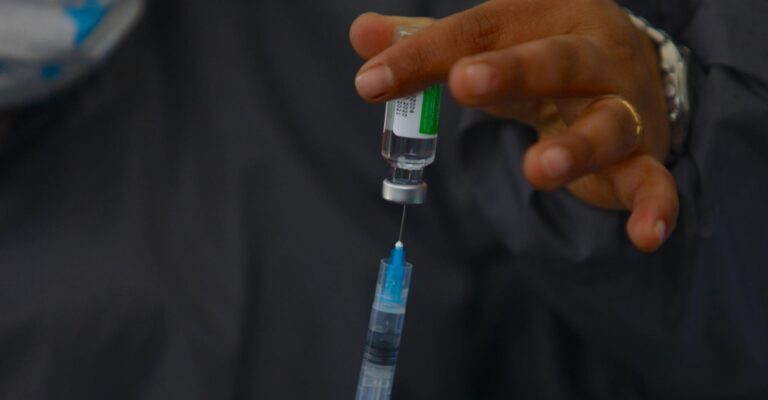
Nepal received 1,965,600 doses of the Moderna vaccine through COVAX on Sunday as part of the 3,712,000 doses committed by the international vaccine-sharing scheme.
Before this, COVAX had supplied 188,400 doses of the Moderna vaccine on December 4 and 1,497,600 doses on December 9.
Nepal is currently using AstraZeneca, Vero Cell, Janssen, Moderna and Pfizer-BioNTech COVID-19 vaccines.
As per the Ministry of Health and Population, the Moderna vaccines will be administered to children between 12 and 17 years in 57 districts from December 20 and students will be inoculated at their respective schools.
Nepal launched its vaccination campaign against COVID-19 on January 27 this year. Although the vaccination campaign gained momentum at the beginning, it seems to have slowed down lately with few takers in city areas.
The government plans to vaccinate around 78 percent, or around 25 million people, of the 30 million estimated population by April 2022.
However, as 2021 draws to a close, the vaccination campaign is moving at snail’s pace and the government is likely to miss its target next year.
As of Sunday, 37.2 percent of the total population has received a single dose whereas 30.5 percent has been fully immunized against COVID-19. Similarly, only 46.5 percent of the target group (i.e. people above the age of 18 years) has been inoculated till Sunday.
The government had said that 75 percent of the target group would be vaccinated with at least a single dose by mid-December. This target seems impossible for now.
Out of the 29,453,730 doses of various vaccines received till date, 6.3 million doses have been stocked at various cold store chains across the country. The distribution of vaccine stock to rural areas has been woefully slow.
As per healthcare authorities, Nepal currently has ample doses of vaccines, but the demand for the same is dwindling. While some rural residents are simply hesitant to take the jabs, others don’t bother traveling long distances to reach vaccination centers.
According to Vaccine Expert Committee Coordinator Dr Shyamraj Upreti, health education programs should be conducted in areas that have few vaccine takers so as to encourage people to seek the jabs. He added that adding vaccination centers would also make it easier for people to get vaccinated.
“The closer a vaccination center is, the more people will be willing to get the jab.”






